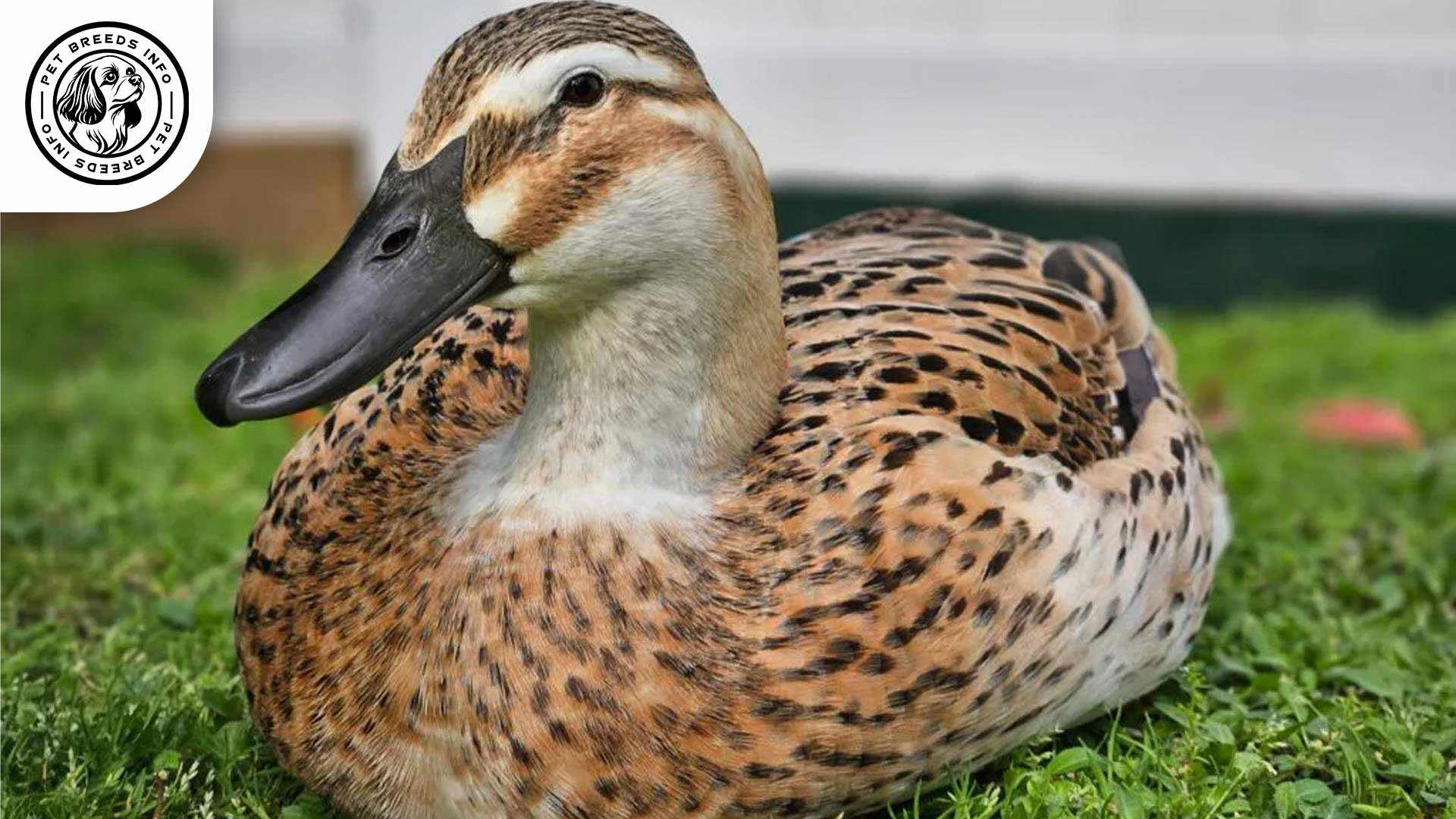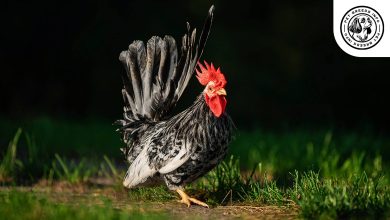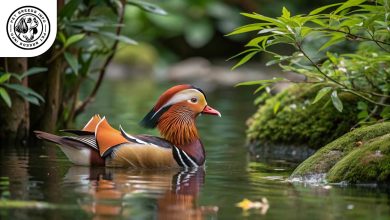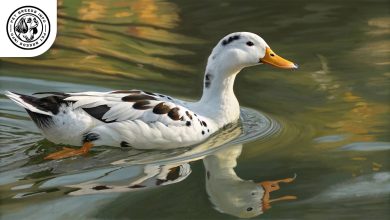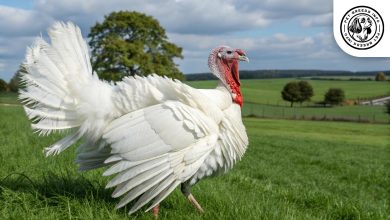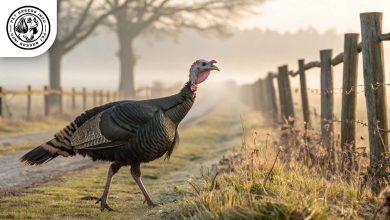Welsh Harlequin Duck Breed: Personality, Lifespan, Food & Care
General Introduction of the Breed
The Welsh Harlequin Duck is a domestic breed of duck that originates from Wales, United Kingdom. It is also known simply as the “Welsh Harlequin.” This breed was first developed in 1949 by Leslie Bonnet, who selectively bred lighter-colored Khaki Campbell ducks to create the unique and beautiful Welsh Harlequin.
Since its creation, this breed has gained popularity among duck enthusiasts due to its striking plumage, excellent egg-laying ability, and calm temperament. Today, the Welsh Harlequin is recognized as a dual-purpose breed, suitable for both egg production and meat.
Table of Contents
| Common Name | Welsh Harlequin Duck |
| Scientific Name | Not explicitly mentioned in the text (typically Anas platyrhynchos domesticus) |
| Origin | Wales, United Kingdom |
| Size | Medium-sized; Males: 5.5-6 lbs (2.5-2.7 kg), Females: 4.5-5.5 lbs (2-2.5 kg) |
| Lifespan | 7 to 10 years |
| Talking Ability | Not applicable (ducks do not “talk” in the human sense) |
| Colors | Males: white, gold, fawn, darker shades of brown or green (iridescent green head). Females: subtle golden-buff. Bills: greenish-yellow (males), orange-pink (females). Legs/feet: orange. |
| Noise Level | Not explicitly stated, but their calm demeanor suggests a moderate noise level typical of ducks. |
| Social Behavior | Social; thrive in the company of other ducks and humans; form strong bonds with owners. |
Physical Characteristics
The Welsh Harlequin Duck is a medium-sized breed. Males typically weigh around 5.5 to 6 pounds (2.5 to 2.7 kg), while females are slightly lighter, ranging from 4.5 to 5.5 pounds (2 to 2.5 kg).
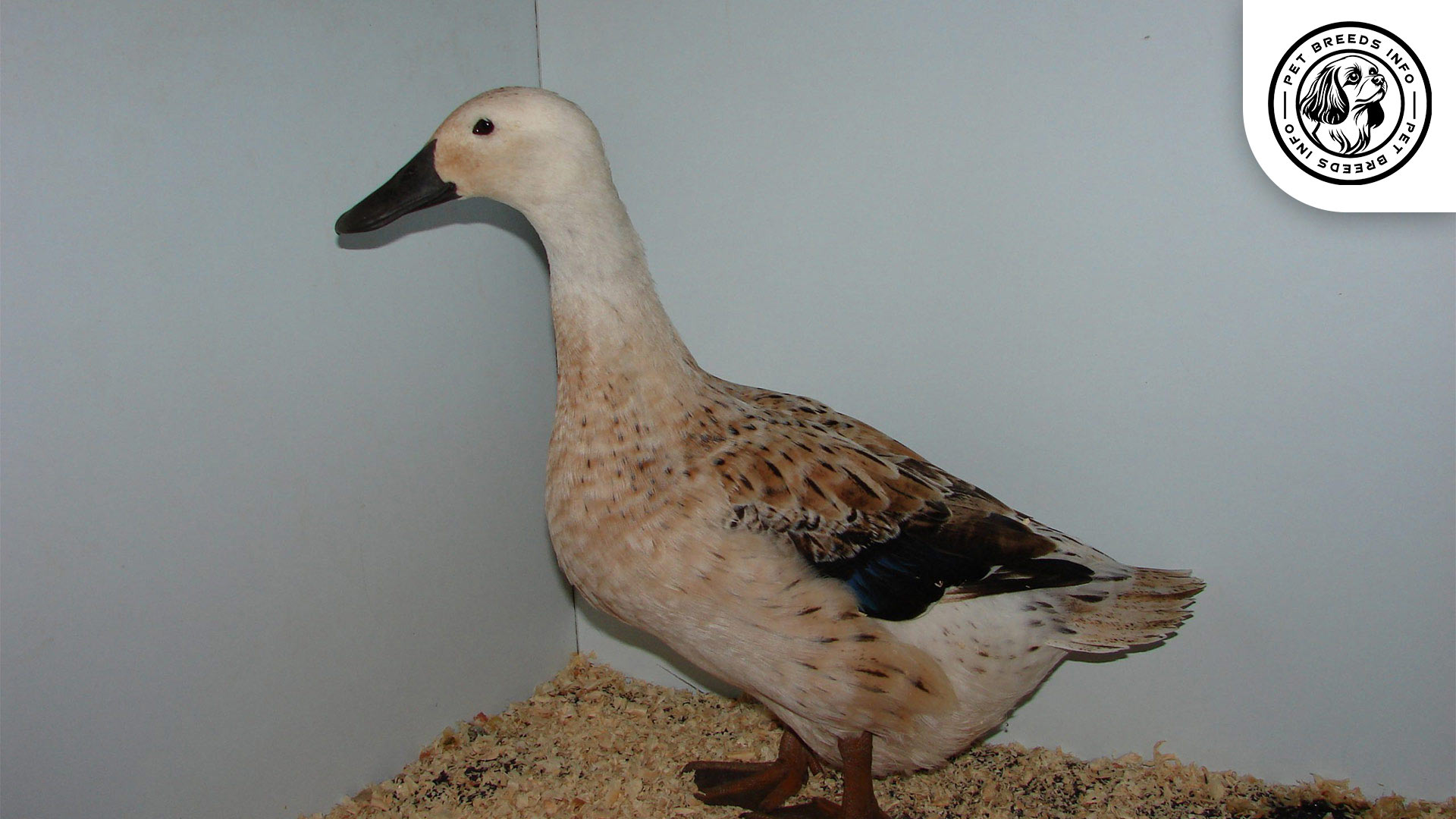
This breed has a sleek, streamlined body with a medium-length neck. The plumage is one of its most distinctive features, displaying a striking combination of white, gold, fawn, and darker shades of brown or green in males. Males have an iridescent green head similar to Mallards, while females exhibit a more subtle golden-buff coloring.
Their eyes are dark brown, and their bills vary in color – drakes typically have greenish-yellow bills, while females sport a more orange-pink hue. The legs and feet are orange, complementing their elegant appearance.
Read More: White-fronted Amazon
Personality and Temperament
Welsh Harlequin Ducks are known for their docile and friendly nature. They are intelligent birds, quick to learn routines, and highly adaptable to different environments.
They possess a moderate energy level but are not as flighty or nervous as some other duck breeds. Their calm demeanor makes them an excellent choice for beginner duck keepers and families alike.
These ducks form strong bonds with their owners and can be quite social, thriving in the company of other ducks and humans. They are not naturally aggressive and interact well with children and other domestic animals. Additionally, their curious and active nature makes them enjoyable to watch as they forage and explore their surroundings.
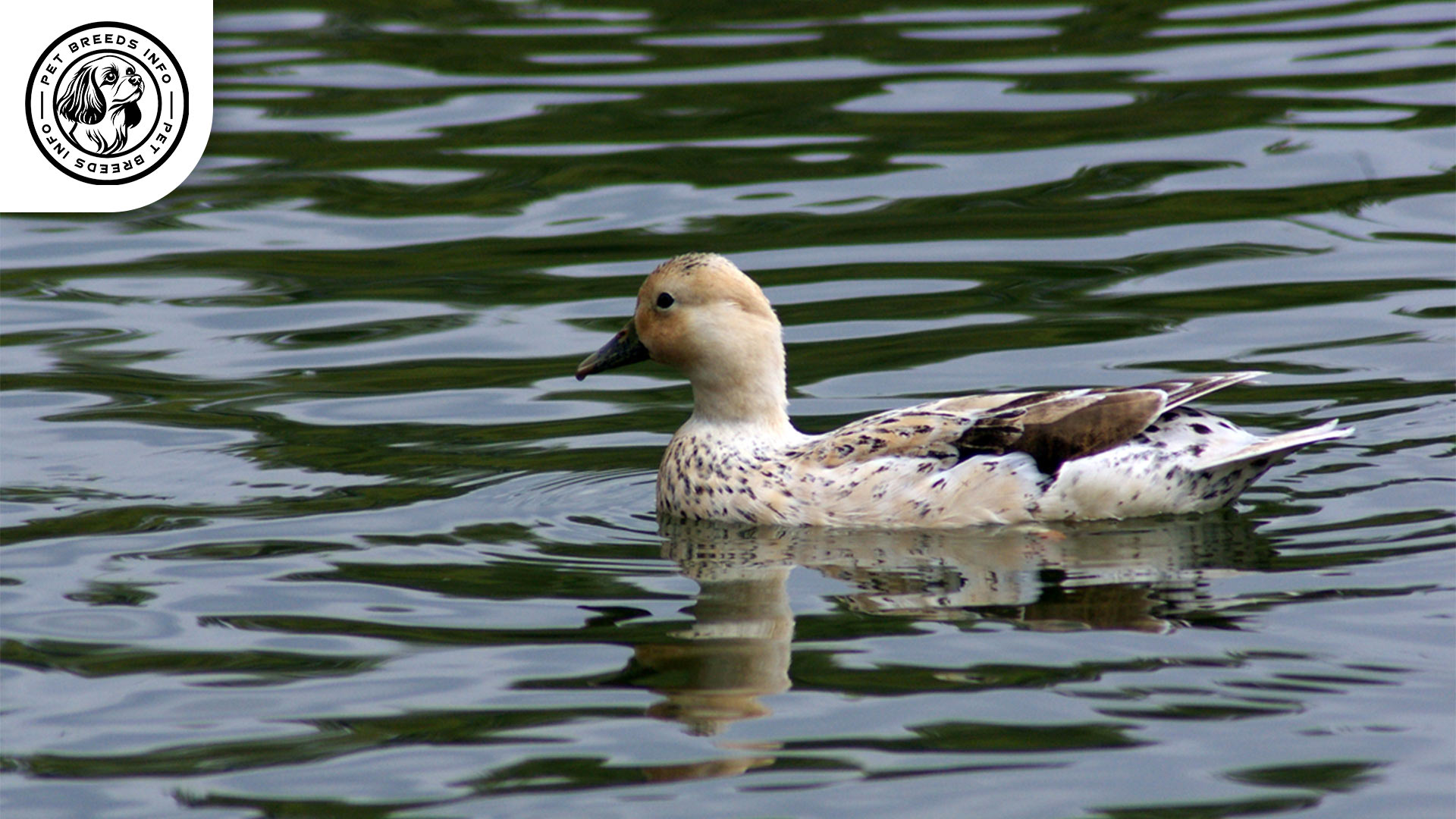
Care and Maintenance Requirements
Welsh Harlequin Ducks require daily access to fresh water for drinking and bathing. Although they do not necessarily need a large pond, having a small water source helps maintain their feather health.
They thrive in spacious outdoor environments with access to foraging areas. However, they can also adapt to backyard setups as long as they have a secure shelter to protect them from predators.
In terms of grooming, these ducks require minimal maintenance. Their waterproof feathers naturally repel dirt, making extensive cleaning unnecessary. Proper housing with clean bedding and protection from extreme weather conditions is essential.
They are hardy birds but should be protected from excessive cold and heat by providing appropriate shelter. Hygiene essentials such as clean water, dry bedding, and regular coop maintenance will ensure their health and well-being.
Diet and Nutrition
Welsh Harlequin Ducks thrive on a balanced diet consisting of high-quality duck feed, fresh greens, and occasional protein sources such as mealworms or insects.
A standard diet includes waterfowl pellets or crumbles, supplemented with grains, vegetables, and access to foraging opportunities. They benefit from calcium-rich treats like crushed oyster shells, especially during the laying season.
Certain foods should be avoided, such as processed foods, salty snacks, chocolate, avocados, and raw potatoes. Clean, fresh water should always be readily available for drinking and digestion.
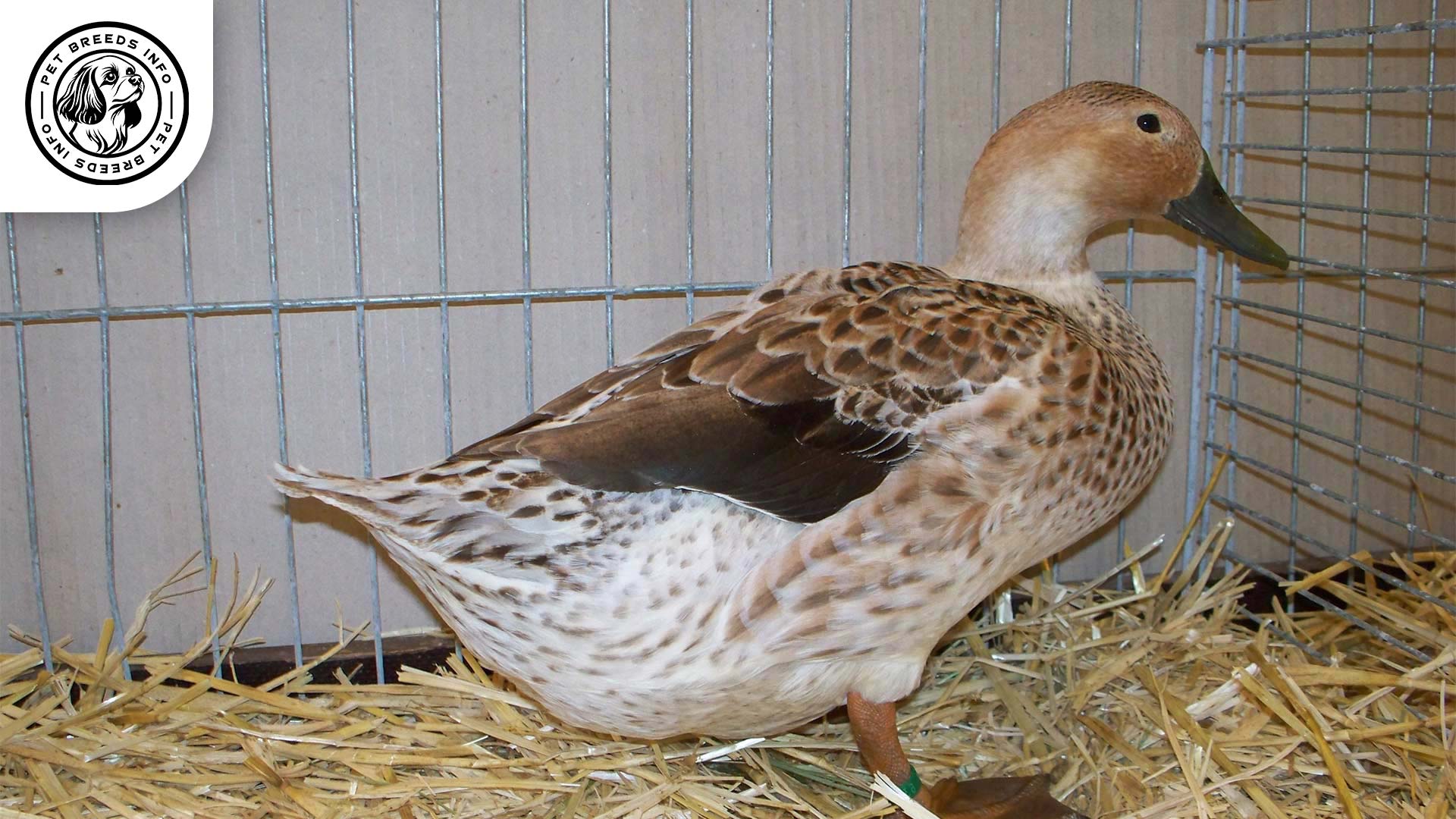
Health and Common Medical Issues
Welsh Harlequin Ducks are generally hardy and resistant to many common poultry diseases. However, they can be prone to conditions such as bumblefoot, respiratory infections, and parasites if their environment is not kept clean.
To maintain optimal health, regular veterinary checkups, vaccinations if necessary, and preventive measures such as proper coop maintenance are recommended.
The expected lifespan of a healthy Welsh Harlequin Duck ranges from 7 to 10 years with proper care.
Read More: Sweetgrass Turkey
Training and Behavior Management
These ducks are relatively easy to train, especially when raised from a young age. They quickly learn routines and can respond well to positive reinforcement methods.
Early socialization helps establish trust with their owners. Simple training techniques such as calling them for food can encourage responsiveness.
Since they are naturally social birds, keeping them in small flocks is beneficial for their well-being.
Interaction with Other Animals and Humans
Welsh Harlequin Ducks are very sociable and interact well with humans, including children. Their gentle disposition makes them suitable for family environments, especially for those looking for friendly backyard ducks.
They also get along well with other ducks and poultry, but care should be taken when introducing them to larger, more aggressive animals.
As affectionate as they are, they still maintain some independence and enjoy foraging on their own.
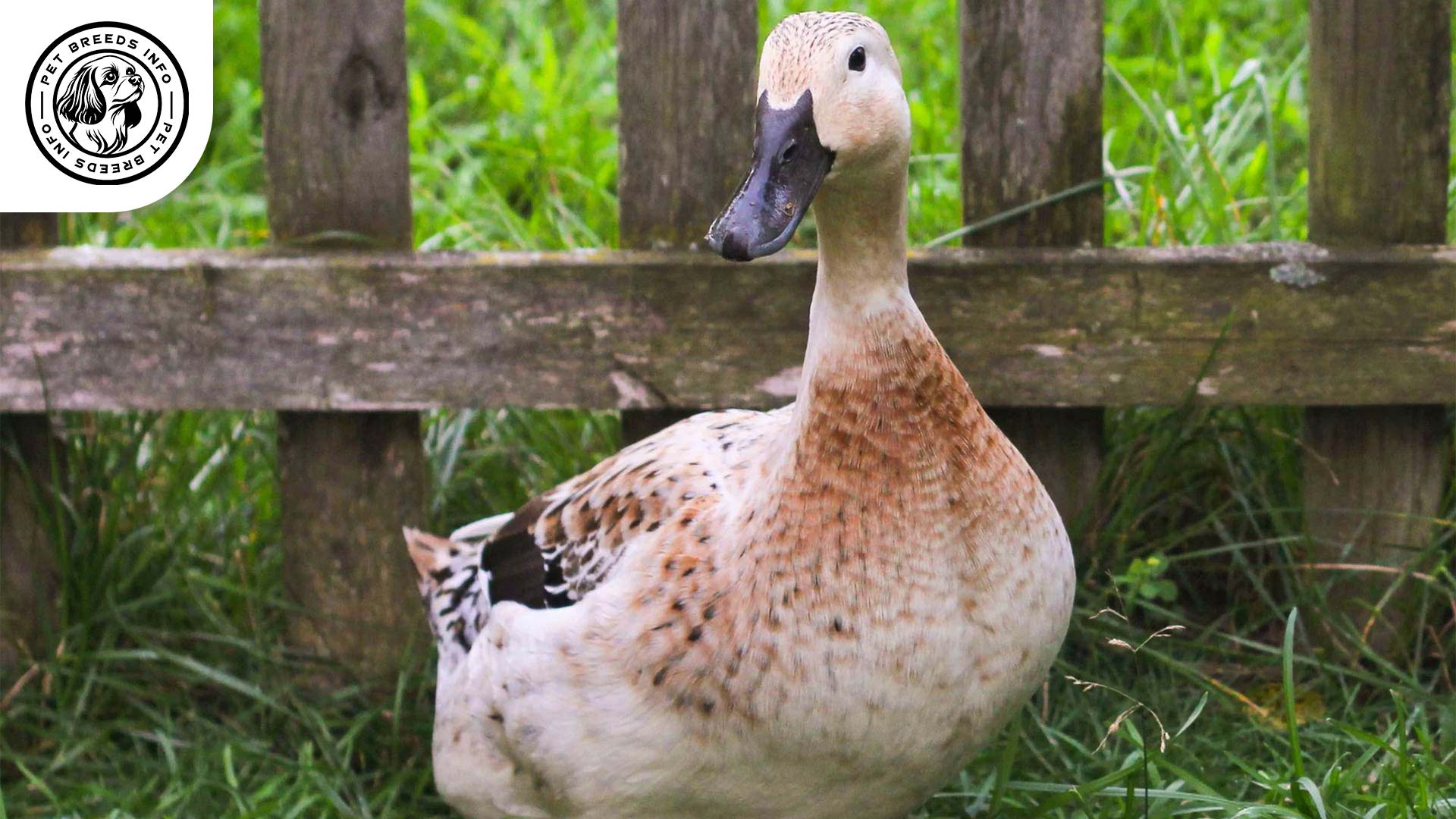
Price and Availability
The cost of a Welsh Harlequin Duck varies depending on age, breeder reputation, and location. On average, ducklings range from $8 to $15 each, while adult ducks may cost between $20 and $40.
It is advisable to purchase from reputable breeders or specialized poultry farms to ensure healthy birds. Some dedicated farms and hatcheries offer online ordering options with safe shipping.
Adoption from rescue organizations or farms looking to rehome ducks is another option for prospective owners.
Conclusion and Final Thoughts
The Welsh Harlequin Duck is an exceptional choice for poultry enthusiasts, hobby farmers, and backyard keepers alike. With their striking appearance, high egg-laying ability, and friendly temperament, they are a joy to raise.
They are best suited for environments that allow free-range access or secure outdoor housing. While they require minimal grooming, they do need fresh water, proper nutrition, and protection from predators.
Anyone considering raising Welsh Harlequin Ducks should ensure they can provide proper care, a safe space, and a steady food supply. With the right conditions, these ducks make wonderful, low-maintenance companions.
Read More: Swallow Pigeon
FAQ
What is a Welsh Harlequin Duck known for?
They are known for their striking plumage, excellent egg-laying ability, and calm temperament.
Are Welsh Harlequin Ducks good for beginners?
Yes, their calm demeanor makes them an excellent choice for beginner duck keepers.
What do Welsh Harlequin Ducks eat?
They thrive on a balanced diet of high-quality duck feed, fresh greens, and occasional protein sources.
How much space do Welsh Harlequin Ducks need?
They thrive in spacious outdoor environments but can adapt to backyard setups with a secure shelter.
What is the lifespan of a Welsh Harlequin Duck?
The expected lifespan is 7 to 10 years with proper care.
